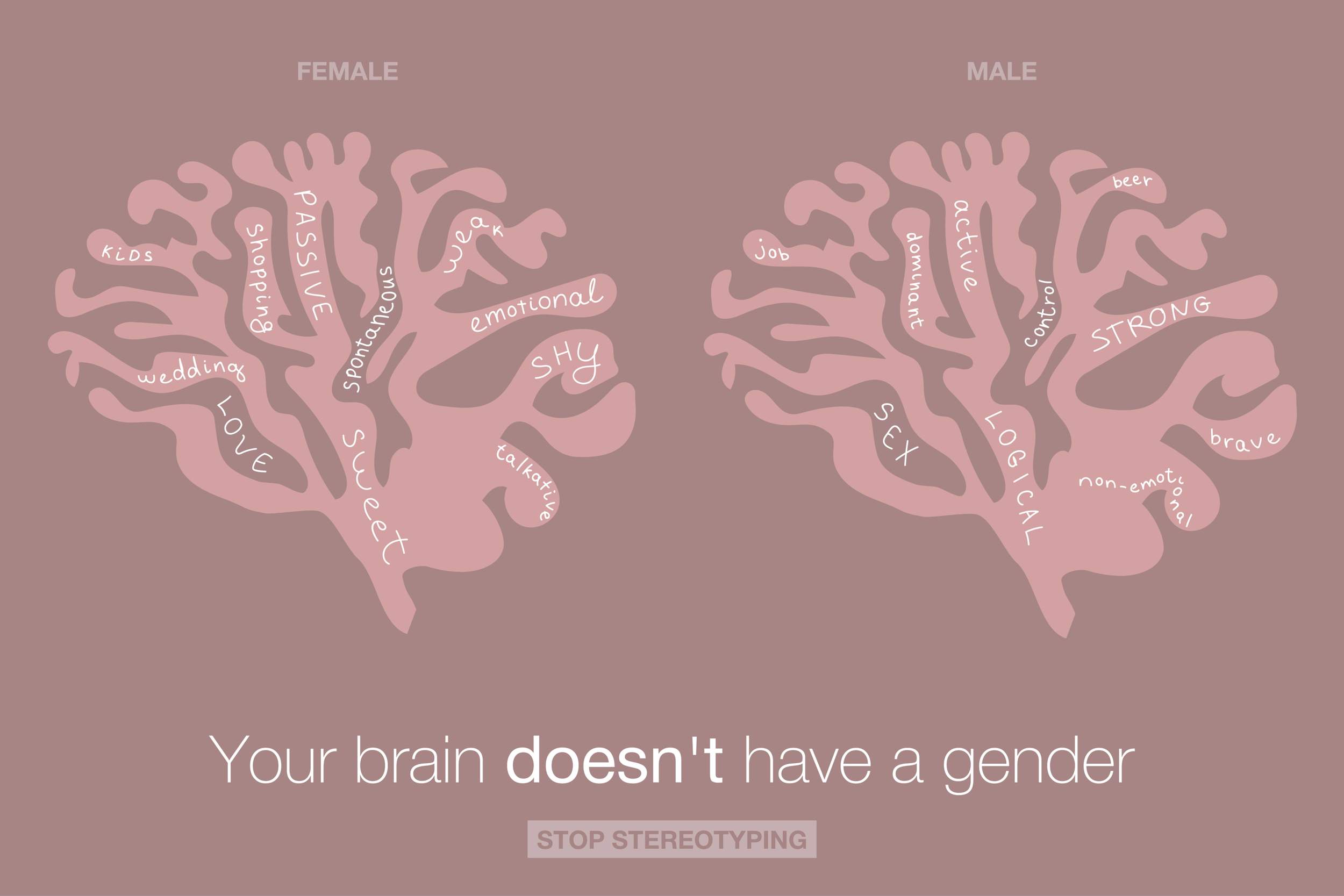I’m an 18-year-old female. I’m cisgender and bisexual. I’ve been in a monogamous relationship with my cisgender bisexual boyfriend for about a year. I’m currently struggling with a lot of internalized biphobia and other hang-ups about my boyfriend’s sexuality. I don’t know if I’m projecting my own issues onto him or if I’m just being bigoted towards bi men, but either way, I feel truly awful about it. But when I think about the fact that he’s bi and is attracted to men, I become jealous and fearful that he will leave me for a man or that he would rather be with a man. (I’ve been with men and women in the past; he’s never been with a man.) I know it is unfair of me to feel this way and he’s never given me any real reason to fear this. We have a very engaged, kinky, and rewarding sex life! But I worry I’m not what he really wants.This situation is complicated by the near certainty that my boyfriend has some sort of hormonal disorder. He has a very young face for an 18-year-old, a feminine figure, and not a lot of body hair. He orgasms but he does not ejaculate; and although he has a sizable penis, his testicles are more like the size of grapes than eggs. He struggles a lot with feeling abnormal and un-masculine. I try to be as supportive as possible and tell him how attracted to him I am and how he’ll get through whatever this is. But he can tell his bi-ness makes me nervous and uncomfortable. I think that because he appears more feminine than most men and is more often hit on by men than women, I worry that he would feel more comfortable or “normal” with a man. I don’t want to contribute to him feeling abnormal or bad about himself. How do I stop worrying that he’s gay or would be happier with a man? I feel horrible about myself for these anxieties considering that I’m bi too, and should know better.Anonymous Nervous Girlfriend Seeks Tranquility
“Many people who encounter us Bi+ folk in the wild just project their insecurities onto us with impunity and then blame us for it,” said RJ Aguiar, a bisexual activist and content creator whose work has been featured on Buzzfeed, HuffPo, Queerty and other sites. “As someone who’s bi herself, I’m sure ANGST know this all too well.”
So if you’ve been on the receiving end of biphobia—as almost all bisexual people have—why are you doing it to your bisexual boyfriend?
“This hypothetical so-and-so-is-going-to-leave-me-for-someone-hotter scenario could happen to anyone of any orientation,” said Aguiar. “But maybe because the potential ‘pool of applicants’ is over twice as big for us Bi+ folk, we get stuck with twice as much of this irrational fear? I don’t know. But here’s what I do know: most Biphobia (and jealousy for that matter) is projected insecurity. Built into the fear that someone will leave you because they ‘like x or y better’ is the assumption that you yourself aren’t good enough.”
And while feelings of insecurity and jealousy can undermine a relationship, ANGST, they don’t have to. It all depends on how you address them when they arise.
“We all have our moments!” said Aguiar. “But we can turn these moments into opportunities for open communication and intimacy rather than moments of isolation and shame. That way they end up bringing you closer, rather than drive this invisible wedge between you. The key is to understand that feelings aren’t always rational. But if we can share those feelings with the person we love without fear of judgment or reprisal, it can help create a space of comfort and intimacy that no piece of ass will ever be able to compete with—no matter how hot they are or what they may or may not have between their legs.”
As for the reasons you’re feeling insecure—your boyfriend might be gay and/or happier with a man—I’m not going to lie to you, ANGST. Your boyfriend could be gay (some people who aren’t bisexual identify as bi before coming out as gay or lesbian), and/or he could one day realize that he’d be happier with a man (just as you could one day realize that you’d be happier with a woman). But your wonderful sex life—your engaging, kinky, rewarding sex life—is pretty good evidence that your boyfriend isn’t gay. (I was one of those guys who identified as bi before coming out as gay, ANGST, and I had girlfriends and the sex we had was far from wonderful.)
And now I’m going tell you something you no doubt already know: Very few people wind up spending their lives with the person they were dating at 18. You and your boyfriend are both in the process of figuring out who you are and what you want. It’s possible he’ll realize you’re not the person he wants to be with, ANGST, but it’s also possible you’ll realize he’s not the person you want to be with. Stop worrying about the next six or seven decades of your life—stop worrying about forever—and enjoy this time and this boy and this relationship for however long it lasts.
Finally, ANGST, on the off chance your boyfriend hasn’t spoken to a doctor about his symptoms—because he’s an uninsured/underinsured/unlucky American or because he’s been too embarrassed to bring up the size of his balls and quality of ejaculations with his parents and/or doctor—I shared your letter with Dr. John Amory, Professor of Medicine at the University of Washington.
“An 18-year-old male with testicles the ‘size of grapes’ indicates an issue with testicular development,” said Dr. Amory. “The reduced testicular volume, in combination with the other features such as his feminine face and sparse body hair, also suggest an issue with testicular function.”
It could simply be delayed puberty—some people suddenly grow six inches when they get to college—or it could be something called Klinefelter syndrome.
“Klinefelter syndrome occurs in one out of every 500 males and is associated with small testicular volume and decreased testosterone,” said Dr. Amory. “This diagnosis is frequently missed because the penis is normal in size and the men are normal in most other ways, although about half of men with Klinefelter syndrome (KS) can have breast enlargement (gynecomastia) that can be seen as feminizing. Bottom line: Small testes at age 18 means it’s time for a doctor’s visit—probably an endocrinologist or urologist—to take a family history, do an examination, and consider measurement of testosterone and some other hormones. This should help him understand if he ‘just needs to wait’ or if he has a diagnosis that could be treated. There is a real possibility that he has KS, which is usually treated with testosterone to improve muscle mass, bone density and sexual function.”
Follow RJ Aguiar on Twitter @rj4gui4r.
I’m a 27-year-old woman whose boyfriend recently broke up with her. Along with the usual feelings of grief and heartbreak, I’m feeling a lot of guilt about how I handled our sex life, which was one of the main issues in our breakup. My now ex-boyfriend was interested in BDSM and a kink-oriented lifestyle, and I experimented with that for him. I attended several play parties, went to a five-day-long kink camp with him, and tried out many of his BDSM fantasies. The problem became that, hard as I tried, I just wasn’t very interested in that lifestyle and parts of it made me very uncomfortable. I was game to do the lighter stuff (spanking, bondage), but just couldn’t get behind the more extreme things. I disappointed him because I “went along with it” only to decide I wasn’t into it and that I unfairly represented my interest in his lifestyle. Did I do something wrong? What should I have done?Basically A Little Kinky
All you’re guilty of doing, BALK, is exactly what kinksters everywhere hope their vanilla partners will do. You gave it a try—you were good, giving, and game enough to explore BDSM with and for him—and sometimes that works, e.g. someone who always thought of themselves as vanilla goes to a play party or a five-day-long kink camp and suddenly realizes, hey, I’m pretty kinky, too! But it doesn’t always work. Since the alternative to “went along with it” was “never gave it a chance,” BALK, your ex-boyfriend should be giving you credit for trying, not grief for supposedly misleading him.
Dan Savage is a nationally syndicated sex advice columnist writing for The Stranger in Seattle. Contact him at [email protected] or @fakedansavage on Twitter and listen to his podcast every week at savagelovecast.com.












